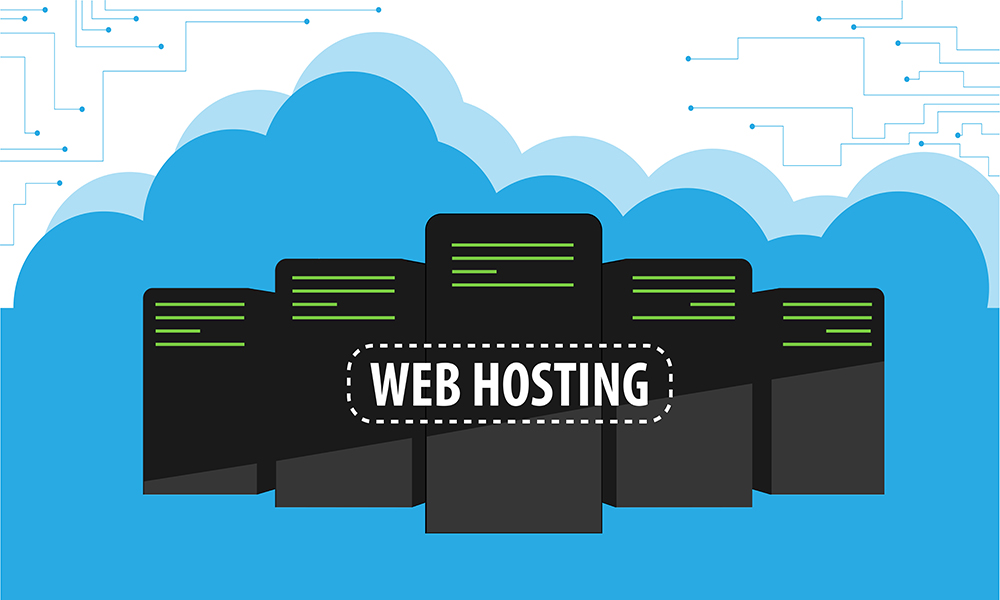When you set up a website, you have to make a choice on how and where to host your site. There are basically four main website hosting options: dedicated server hosting, VPS hosting, cloud hosting, and shared hosting. All four of these hosting options are popular among businesses, and each option comes with its own benefits and drawbacks.
If you’re not sure which hosting option to choose or even if you still have a pretty shaky grasp on how these different hosting options work, keep reading to learn about each of the four main website hosting options and to get the latest simple hosting advice for businesses of any size.
Dedicated Server Hosting
To host your website on a dedicated server, you must rent or purchase your own private server up front. Dedicated server hosting is the only website hosting option that does not involve any outsourcing for your service needs. The dedicated server you rent or purchase is a physical server that is only used by your website and business. It is not shared with any other businesses or their websites.
Dedicated server hosting is ideal for larger businesses and websites that generate a high amount of traffic. It is one of the least budget-friendly website hosting options, but it provides very high levels of security for your website and business, high speed and performance, and tons of space. It also gives your website the opportunity to handle unlimited traffic.
VPS Hosting

VPS—Virtual Private Server—hosting involves paying for a private share of a physical server and its resources for your website. When you choose to host your website on a VPS, you outsource your server management responsibilities to a VPS service provider that owns and manages a network of physical servers.
True to its name, VPS hosting involves a virtual dimension wherein the server provider divides up the capacity and resources of their physical servers into multiple virtual private server configurations that are then distributed among the shareholders of the VPS. The virtual dimension involved is really the only component apart from shared versus private that sets the VPS hosting model apart from that of dedicated server hosting.
VPS is ideal for smaller businesses because it is a cost-effective server hosting option, but its resources are limited.
Cloud Hosting
Cloud hosting is similar to VPS hosting, but it involves outsourcing your server management responsibilities to a cloud provider and running your website on a virtual rather than a physical server. A cloud provider runs your website in the public cloud, a virtual shared environment that encompasses multiple virtual servers.
Cloud hosting is the most versatile website hosting option and is ideal for both small and large businesses. When you run your website in the cloud, you only pay for the server capacity that your website needs to run properly. This is in contrast to dedicated server hosting, which requires you to pay upfront for the entire capacity of the server you buy—regardless of how much of it your website actually uses. With cloud hosting, you can also choose to easily increase your website’s server capacity when your website or app grows and requires more space and memory.
Plus, the use of and subsequent investment in cloud hosting by many major, ultra-wealthy corporations has contributed to the development of cloud hosting security that rivals or exceeds that of dedicated servers.
Shared Hosting
Shared hosting is somewhat similar to cloud hosting in that it involves multiple businesses sharing the same virtual environment, but there are clear differences between shared and cloud hosting.
In the case of shared hosting, multiple websites share a single server. All of the businesses that run all of the websites that the single server hosts share all of the server’s resources—such as the speed, capacity, and memory of the server—among themselves.
Shared hosting is ideal for businesses that operate on a smaller scale. This type of hosting causes your website to run slightly slower with slightly lower performance, but it is user-friendly and cost-effective. Shared hosting is the most budget-friendly website hosting choice of the four main options available. It also involves outsourcing to a host that manages and provides virtually all tech support for the server, which makes the shared server very easy and non-frustrating to use.

